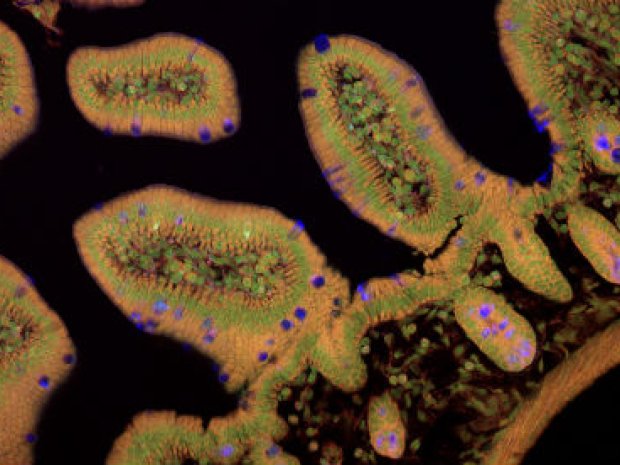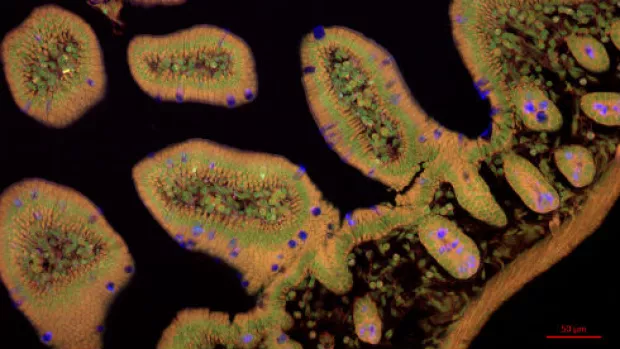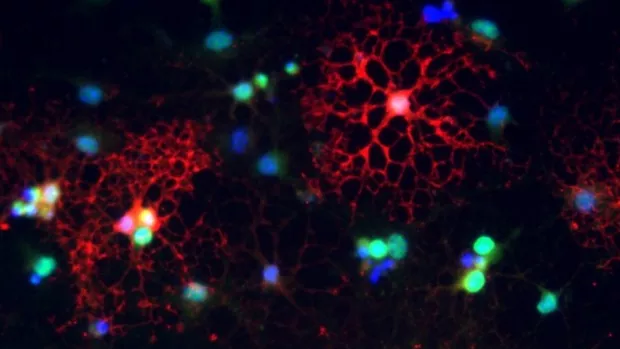
Under the microscope: a good gut feeling
Did you know you have more microbes in your stomach and intestines than you have human cells making up your body? It may sound like science fiction, but these hidden hitchhikers have important roles to play in the body.
Gut microbiota is made up of all the micro-organisms (mainly bacteria) living in our intestines. There are thousands of species of bacteria that make up your gut microbiota, and everyone’s is different.
Working as a team
The relationship between you and your gut microbiota benefits everyone involved. The body provides a safe environment with a steady supply of nutrients for the microbes. In return, they help with digestion and so much more.
Gut microbiota can help to shape what immune cells are present in the body, and in what quantity. This can mean making the immune system more tolerant to good bacteria and better at fighting harmful bacteria.
Thinking from your stomach
What's more, the gut microbiota can even affect the central nervous system. Molecules produced by microbes can cause nerves to send messages from the intestines to the brain. These effects depend on what microbes are present in the gut.
Although the research is still at an early stage, researchers think the gut microbiome might have a role in MS by triggering or ramping up the immune system's faulty response.
Small changes for great benefit
Researchers have found they can reduce the severity of a mouse-model of MS by changing the types of microbes present in the intestines of the mice. In August 2017 researchers found that a common gut bacterium, called P. histicola, can reduce MS-like symptoms in mice. The bacteria changed the behaviour of cells in the immune system, and how easy it was for them to get into the brain.
The effects extend beyond the immune system. A recent study has shown the gut microbiota can affect the process of adding myelin to nerves in mice. Mice without gut microbiota had thicker layers of myelin in their prefrontal cortex (a section of the brain).
A growing body of work
Whilst it is not known whether this is true in humans, it is evidence of the extent to which the microbiota can influence processes in the body.
So far, studies have looked for differences in the gut microbiota of people with MS compared to those without. These small-scale studies have found differences between these two groups, suggesting the gut microbiota could play a role in MS.
A much larger study, called the International MS Microbiome Study, is now underway, investigating the diet, gut microbiome and genetics of people with and without MS.
What’s next?
What we know so far highlights the possibility of using gut microbes or components of microbes as a treatment for MS. But there's a lot more we need to find out. Understanding the changes in the microbiota in MS is the next step to see if treatments could be effective.
We look forward to seeing this area of research progress – but for now, we’re impressed at just how big an effect these little guys can have in the body.
> Read the full paper of the study into the effect of gut bacteria on MS-like symptoms in mice
> Find out more about the International MS Microbiome Study
This blog first appeared in Research Matters magazine and was updated by our Research Communications team in May 2020 to reflect the latest insights. To receive Research Matters by post please contact [email protected] about subscription.


